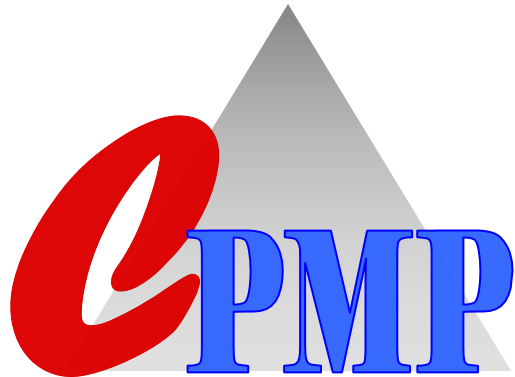
How to Create an Interview Cheat Sheet (Including Benefits)
Preparing for an interview is an essential step toward getting your desired job. An interview is a practical way to demonstrate competence and convince interviewers that you're the best candidate for the job. Knowing how to create a cheat sheet for your in-person interview can help you remember specific details to include in your responses to questions, which can help you make a better impression. In this article, we highlight how to create an interview cheat sheet, provide the benefits, and outline helpful tips for a successful interview.
How to create an interview cheat sheet
An interview cheat sheet is a checklist of items that can help you succeed in your interview. You may include specific keywords to remind you how to structure your responses during your interview. Below are the steps for creating a cheat sheet for your interview:
1. Choose the appropriate writing materials
When creating your cheat sheet, consider using a small clean sheet of paper. You may use a pencil so that you can erase what you wrote and correct any errors. Avoid including too many details on your cheat sheet to reduce how often you read it during your interview. Consider restricting the details to only questions, keywords, and other relevant details to help you present yourself as prepared and qualified for the position. You can first create a draft as you work through your ideas, after which you can write the final copy of your cheat sheet to take for your in-person interview.
2. Highlight the interviewer's name
Research the interviewers' names before you begin your interview. Write the name at the top of your cheat sheet, so that it's easy to access. It's helpful to put this information at the top of your page. Referring to your interviewers by their names helps you make the interview more personal and can help you feel more relaxed while answering their questions.
3. Outline key points about the organization
It's advisable to do thorough research about the organization where you're applying to work, its core values, goals, and achievements. You can check the company's website or ask a current team member to share essential updates about the company, its objectives, and the services it renders. Consider noting a few interesting and important points you can discuss with your interviewer. You can demonstrate your interest in the company by discussing it extensively and asking questions about its operations.
4. Write a brief note about yourself
Interviewers usually begin the interview by asking general questions about you to understand your personality and professional values. A common question you may get is, "Can you tell me more about yourself?" Consider writing a brief description of your educational background, professional experience, and reasons you chose your career path.
It's advisable to practise answering this question multiple times until you can provide a detailed answer comfortably, without looking at the cheat sheet. Only include essential details of your response on your cheat sheet as bullet points. To maintain a conversational interview, limit how often you look at the cheat sheet to help provide answers in a natural way.
5. Outline answers to common interview questions
Prepare for your interview by researching general and role-specific questions your interviewer may ask. Also, research the appropriate answers for each question and essential keywords your interviewer may expect in your response. Outline the responses under each question on your cheat sheet, and then practise them multiple times. Ensure that you provide honest responses that address the question.
Read more: 19 Common Interview Questions and Answers
6. Highlight a few professional stories
As you proceed in your interview, your interviewer may ask in-depth questions about the position. These questions are often behavioural questions meant to assess how you can handle certain situations if you get the job. Through your response, interviewers can also determine if you have the required skills or professional qualities for the role. On your cheat sheet, you can note a few professional experiences that portray your skills and professionalism to help you answer this type of question effectively.
7. Note your preferred salary range
Note your preferred salary range on your cheat sheet in case your interviewer asks you about it. You can find a suitable salary range for the role by researching the average national salary for professionals with your degree and experience. Also, compare the minimum salary needed for your financial obligations and the salaries in your previous positions. Ensure that you present a fair and feasible salary that interviewers can consider, and be ready to negotiate with them.
Read more: Salary Range: Definition and When It's Used or Determined
8. Outline questions for your interviewer
Make a list of questions you can ask your interviewer to demonstrate your interest in the position and company. These questions may focus on the company's processes, work culture, or role. Write at least three questions and wait until you have the opportunity to ask them. Usually, interviewers allow you to ask them questions after they complete all the questions they prepared for you. Ensure that you're polite when asking your questions.
Benefits of a cheat sheet
Consider the benefits of having a cheat sheet for your in-person interview below:
Prepares you for your interview
Creating a cheat sheet for your interview involves evaluating your professional skills and experiences before the interview. You can prepare adequately for your interview by writing a cheat sheet. Creating a cheat sheet also involves reading the job description and researching what hiring managers expect from a viable candidate.
Improves your confidence
You can be more assertive during your interview if you arrive with a cheat sheet. Having a cheat sheet can help you remain focused and answer the questions your interviewer asks confidently. Following the key points on your cheat sheet can help you include all the relevant details to convince your interviewer that you're the best candidate for the job.
Read more: How to Be Confident in an Interview (9 Crucial Steps)
Increases your chances of getting the job
Taking a cheat sheet for your interview is essential because it helps you organize your thoughts and provide detailed answers to your interviewer's questions. You can also remember your relevant professional experiences to mention during your interview if you have a cheat sheet. Asking the relevant questions on your cheat sheet can signify your interest in the position and motivate interviewers to consider you for the job.
Related: 10 Effective Interview Techniques to Help You Get the Job
Get interview-ready with tips from Indeed
Prepare for interviews with practice questions and tips
Tips for a successful in-person interview
Below are a few tips for having a successful in-person interview:
Adopt the STAR approach
You can make a good impression of your professionalism by using the STAR method when responding to your interviewer's questions. Using this method can help you provide detailed responses. If you adopt this approach when answering a question, especially a behavioural question, you describe a related experience before you mention your role. Then you explain the steps you took and the final result. STAR is the acronym for:
-
situation
-
task
-
action
-
result
Read more: How to Use the STAR Interview Method Response Technique
Keep your responses brief
Interviewers usually have multiple interview sessions to organize, so they schedule a specific time for each candidate. Ensure that you provide short and detailed answers, as you have a limited time to convince your interviewer of your compatibility for the role. Consider practising your answers multiple times before your interview so you can master how to make your response thoughtful and brief.
Read more: How Long Should Job Interview Answers Be? (With Examples)
Be punctual
You can make a good first impression by being punctual on your interview day. It's advisable to arrive at the interview location a few minutes before the scheduled time so that you can relax, review your cheat sheet, and confirm your documents before your interview. Plan your route and leave your house early to avoid traffic.
Related: How to Pass an Interview for a Job (With Additional Tips)
Send a thank-you note
Consider sending a thank-you e-mail or note to your interviewer a few days after your interview. In the note, you can thank them for giving you the opportunity to prove your skills and viability for the role. Reiterate your interest in the role and outline your readiness to continue the process.
